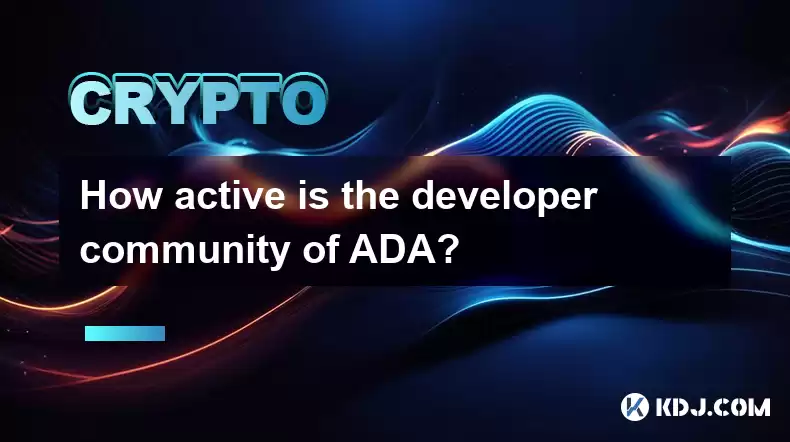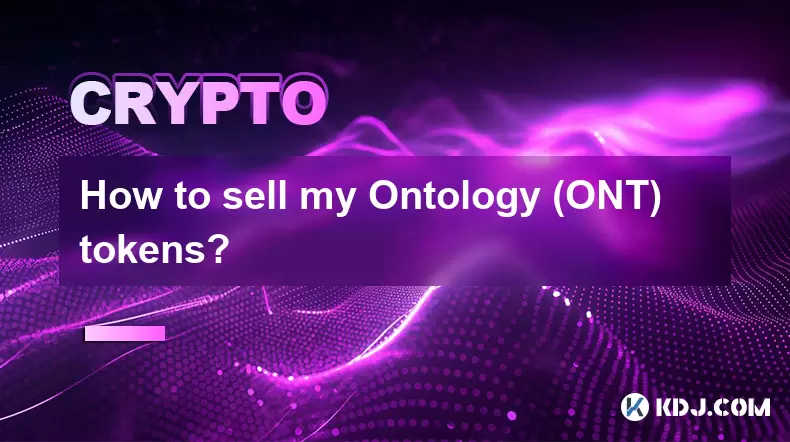-
 Bitcoin
Bitcoin $116400
-0.36% -
 Ethereum
Ethereum $4033
3.40% -
 XRP
XRP $3.302
-1.26% -
 Tether USDt
Tether USDt $1.000
-0.02% -
 BNB
BNB $796.1
1.67% -
 Solana
Solana $177.8
1.89% -
 USDC
USDC $0.9999
0.00% -
 Dogecoin
Dogecoin $0.2314
4.09% -
 TRON
TRON $0.3381
0.14% -
 Cardano
Cardano $0.7989
1.22% -
 Stellar
Stellar $0.4496
-1.84% -
 Chainlink
Chainlink $20.42
9.42% -
 Hyperliquid
Hyperliquid $41.17
0.88% -
 Sui
Sui $3.914
3.77% -
 Bitcoin Cash
Bitcoin Cash $584.7
1.52% -
 Hedera
Hedera $0.2632
-0.54% -
 Avalanche
Avalanche $24.09
3.40% -
 Ethena USDe
Ethena USDe $1.001
-0.02% -
 Litecoin
Litecoin $123.2
1.33% -
 Toncoin
Toncoin $3.318
-0.04% -
 UNUS SED LEO
UNUS SED LEO $8.984
-0.05% -
 Shiba Inu
Shiba Inu $0.00001323
2.85% -
 Uniswap
Uniswap $10.90
4.41% -
 Polkadot
Polkadot $3.999
3.34% -
 Dai
Dai $1.000
0.01% -
 Cronos
Cronos $0.1630
9.64% -
 Bitget Token
Bitget Token $4.484
0.82% -
 Monero
Monero $272.4
2.44% -
 Pepe
Pepe $0.00001173
6.03% -
 Aave
Aave $290.8
2.88%
How active is the developer community of ADA?
Cardano's developer activity, while substantial, isn't easily measured by standard metrics; its focus on peer review and formal processes prioritizes quality over speed, resulting in a diverse, globally distributed community contributing across multiple platforms.
Mar 04, 2025 at 10:25 am

Key Points:
- Cardano's developer community is demonstrably active, but its activity differs in nature and measurement compared to some other larger crypto projects.
- Activity is spread across various platforms and initiatives, making a single, easily quantifiable measure challenging.
- Focus on peer-reviewed research and formal development processes contributes to a slower, more deliberate pace compared to projects prioritizing rapid iteration.
- The community encompasses a diverse range of contributors, from core developers to independent researchers and enthusiasts.
How Active is the Developer Community of ADA?
Cardano (ADA), a blockchain platform known for its academic rigor and layered architecture, boasts a significant developer community. However, assessing its "activity" requires a nuanced understanding of how this community operates and what constitutes "active development." Unlike some projects that prioritize rapid feature releases and frequent code commits, Cardano's development emphasizes a more methodical approach. This impacts how we perceive and measure its developer community's dynamism.
The Cardano community's activity isn't easily captured by simple metrics like GitHub commits alone. While GitHub activity provides a valuable glimpse into code contributions, it doesn't fully represent the broader scope of development. Much of Cardano's development involves rigorous peer review, academic research, and collaboration on formal specifications. These aspects aren't always readily visible through standard code repository tracking.
The IOHK team, a major driving force behind Cardano's development, publishes regular updates on its progress. These updates detail the ongoing work on various aspects of the platform, including the core protocol, smart contract functionality (Plutus), and tooling improvements. These reports often showcase the collaborative nature of development, highlighting contributions from both IOHK engineers and members of the wider community.
Beyond IOHK, independent developers and researchers contribute significantly to the Cardano ecosystem. Many work on decentralized applications (dApps), libraries, and tools that enhance the platform's functionality. This decentralized development model contributes to a diverse and vibrant community, but it also makes centralized measurement more difficult.
The Cardano community thrives on various platforms. Forums, Discord servers, and dedicated websites serve as central hubs for discussions, collaboration, and knowledge sharing. These platforms are vital for fostering a sense of community and facilitating the exchange of ideas, which in turn fuels further development. Tracking activity across all these platforms presents a challenge in creating a singular metric for developer activity.
The peer-reviewed nature of Cardano's development process contributes to a more deliberate pace. This contrasts with some projects that emphasize rapid prototyping and iterative development. While this slower approach might seem less "active" at a superficial level, it aims to ensure greater stability, security, and long-term sustainability of the platform. This rigorous approach is a core tenet of Cardano's philosophy.
The Cardano Foundation also plays a crucial role in fostering the developer community. It actively supports initiatives that encourage participation and contribute to the growth of the ecosystem. Funding grants, hackathons, and educational programs are just some of the ways the foundation supports developers and researchers.
Cardano's roadmap is publicly available, providing transparency into the planned developments. This roadmap serves as a guide for developers, allowing them to contribute to specific goals and prioritize their efforts. The structured approach and clear objectives promote focused development and collaborative efforts within the community.
The level of documentation available for Cardano is quite extensive. This comprehensive documentation aids developers in understanding the intricacies of the platform and contributes to smoother collaboration. The availability of detailed documentation supports a more accessible development environment, fostering greater participation.
The Cardano community also invests heavily in education and training. Numerous resources, including tutorials, workshops, and online courses, are available to help aspiring developers learn about Cardano's technologies and contribute to the ecosystem. This emphasis on education fosters a skilled and engaged community.
While direct comparisons with other cryptocurrency projects are complex due to differences in development methodologies, the scale and diversity of Cardano's developer community are noteworthy. The commitment to rigorous processes and the strong emphasis on peer review suggest a sustainable and potentially highly impactful development trajectory.
Frequently Asked Questions:
Q: How can I contribute to the Cardano developer community?
A: You can contribute by participating in forums, contributing to open-source projects, participating in hackathons, creating educational materials, or even simply spreading awareness about Cardano.
Q: What programming languages are used in Cardano development?
A: Haskell is the primary language for the core protocol, while Plutus, a functional programming language, is used for smart contract development. Other languages are used for various tools and applications within the ecosystem.
Q: Is the Cardano developer community solely comprised of IOHK employees?
A: No, while IOHK plays a significant role, the Cardano developer community is comprised of a diverse group of independent developers, researchers, and enthusiasts from around the world.
Q: Where can I find information about ongoing Cardano development?
A: IOHK’s website and blog, Cardano Foundation’s announcements, and various community forums and social media channels provide regular updates on ongoing development efforts.
Q: How does Cardano's development process differ from other blockchain projects?
A: Cardano emphasizes a formal, peer-reviewed approach, prioritizing rigorous research and a more deliberate pace of development compared to projects that favor rapid iteration. This results in a more robust and secure platform, but at a potentially slower rate of feature implementation.
Disclaimer:info@kdj.com
The information provided is not trading advice. kdj.com does not assume any responsibility for any investments made based on the information provided in this article. Cryptocurrencies are highly volatile and it is highly recommended that you invest with caution after thorough research!
If you believe that the content used on this website infringes your copyright, please contact us immediately (info@kdj.com) and we will delete it promptly.
- Shiba Inu (SHIB) in the Crypto Landscape: Community, Trends, and Future Outlook
- 2025-08-09 20:30:12
- Lasers in Modern Warfare: Iron Beam and the Future of Defense
- 2025-08-09 20:30:12
- Maxi Doge Presale: The Meme Coin That's Pumping Iron and Prices!
- 2025-08-09 19:10:11
- Rare Coin Warning: Don't Get Fooled by That 1p Coin!
- 2025-08-09 18:50:12
- Cardano, Unilabs, and Tron Price: Decoding the Latest Crypto Buzz
- 2025-08-09 18:30:12
- Aerodrome Finance: Price Targets and the Bullish Channel - What's Next?
- 2025-08-09 18:50:12
Related knowledge

Where can I buy UMA (UMA)?
Aug 07,2025 at 06:42pm
Understanding UMA and Its Role in Decentralized FinanceUMA (Universal Market Access) is an Ethereum-based decentralized finance (DeFi) protocol design...

How to buy Storj (STORJ) tokens?
Aug 09,2025 at 07:28am
Understanding Storj (STORJ) and Its Role in Decentralized StorageStorj is a decentralized cloud storage platform that leverages blockchain technology ...

What is the best app to buy Nano (NANO)?
Aug 09,2025 at 03:35am
Understanding Nano (NANO) and Its Unique FeaturesNano is a feeless, instant cryptocurrency designed for fast peer-to-peer transactions. Unlike many ot...

Where can I purchase Siacoin (SC)?
Aug 08,2025 at 11:14am
Understanding Siacoin (SC) and Its Role in the Sia NetworkSiacoin (SC) is the native cryptocurrency of the Sia decentralized cloud storage platform, a...

How to sell my Ontology (ONT) tokens?
Aug 09,2025 at 06:08pm
Understanding Ontology (ONT) and Its Trading EcosystemBefore selling your Ontology (ONT) tokens, it's essential to understand the nature of the crypto...

Where can I buy OMG Network (OMG)?
Aug 08,2025 at 12:57pm
Understanding OMG Network (OMG) and Its PurposeThe OMG Network, originally known as OmiseGO, is a layer-2 scaling solution built on the Ethereum block...

Where can I buy UMA (UMA)?
Aug 07,2025 at 06:42pm
Understanding UMA and Its Role in Decentralized FinanceUMA (Universal Market Access) is an Ethereum-based decentralized finance (DeFi) protocol design...

How to buy Storj (STORJ) tokens?
Aug 09,2025 at 07:28am
Understanding Storj (STORJ) and Its Role in Decentralized StorageStorj is a decentralized cloud storage platform that leverages blockchain technology ...

What is the best app to buy Nano (NANO)?
Aug 09,2025 at 03:35am
Understanding Nano (NANO) and Its Unique FeaturesNano is a feeless, instant cryptocurrency designed for fast peer-to-peer transactions. Unlike many ot...

Where can I purchase Siacoin (SC)?
Aug 08,2025 at 11:14am
Understanding Siacoin (SC) and Its Role in the Sia NetworkSiacoin (SC) is the native cryptocurrency of the Sia decentralized cloud storage platform, a...

How to sell my Ontology (ONT) tokens?
Aug 09,2025 at 06:08pm
Understanding Ontology (ONT) and Its Trading EcosystemBefore selling your Ontology (ONT) tokens, it's essential to understand the nature of the crypto...

Where can I buy OMG Network (OMG)?
Aug 08,2025 at 12:57pm
Understanding OMG Network (OMG) and Its PurposeThe OMG Network, originally known as OmiseGO, is a layer-2 scaling solution built on the Ethereum block...
See all articles

























































































